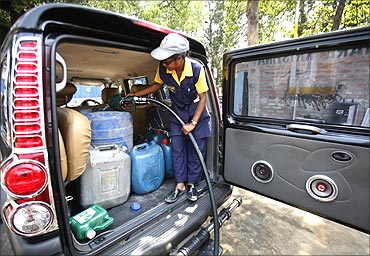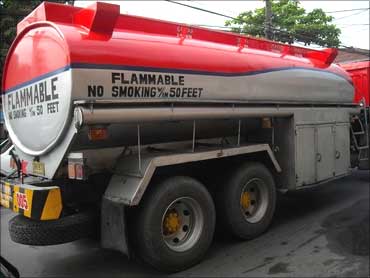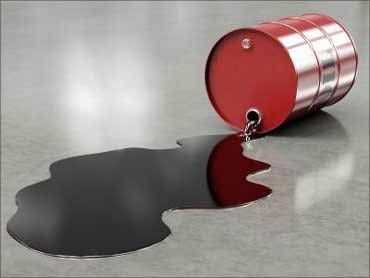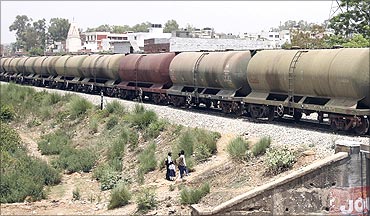
As the Maharashtra government cracks down on the oil mafia in the wake of the gruesome murder of Additional District Collector Yashwant Sonawane, a 15-year-old report on curbing oil adulteration menace prepared by a former IAS officer is gathering dust at the state secretariat.
"I submitted the report to the government in 1995-96. Nothing has been done so far," said Leena Mehendale, the then Nashik divisional commissioner.
Sonawane was burnt alive by the oil mafia in Malegaon, Nashik district, after he initiated a stringent crackdown on them.

"The report came to the Mantralaya (state secretariat). All that we learnt was that no action was going to be taken (on the report)," said Mehendale, who retired last year as additional chief secretary.
The then Dhule district collector had initiated the report, she said. "I expanded the report, went into details. Immediately after the report was submitted, the Dhule collector was transferred. After four months, I was also transferred," she recalled.
The report had noted that oil adulteration and pilferage were rampant in the region where Sonawane was killed. It had also suggested the review of licenses of vendors.

"I recommended that petrol and kerosene licenses should not be given to the same person," she said, adding that the government has turned a blind eye towards this suggestion, leading to rampant adulteration.
Mehendale had discussed the issue with the then law secretary of Maharashtra, seeking an amendment to the Criminal Procedure Code. She suggested that rationing inspectors should get the right to file cases in court.
The retired bureaucrat said, "The other day, I saw on TV Congress leader Rahul Gandhi answering a query on my report. Rahul said he wants to bring in systemic changes and transform the system. This is a welcome announcement, but if you want to bring in changes, there is a need to change the procedure."

"In case of such reports, the least that can be done is to call the officer concerned to Mantralaya for consultation, instead of dumping the report in cold storage," she said.
A final decision on the report can't be taken by the officer; it has to be taken by the Cabinet and by the minister concerned, she said.
"Why do we have such a system where a field officer sends a report, but the government decides that no action is to be taken without assigning any reason," a senior official sought to know.
Mehendale prepared the report based on the then Dhule additional collector's monthly figures on fuel adulteration.
She examined two years' audit of fuel consumption and was shocked to see no proper records were being kept by kerosene and petrol dealers.